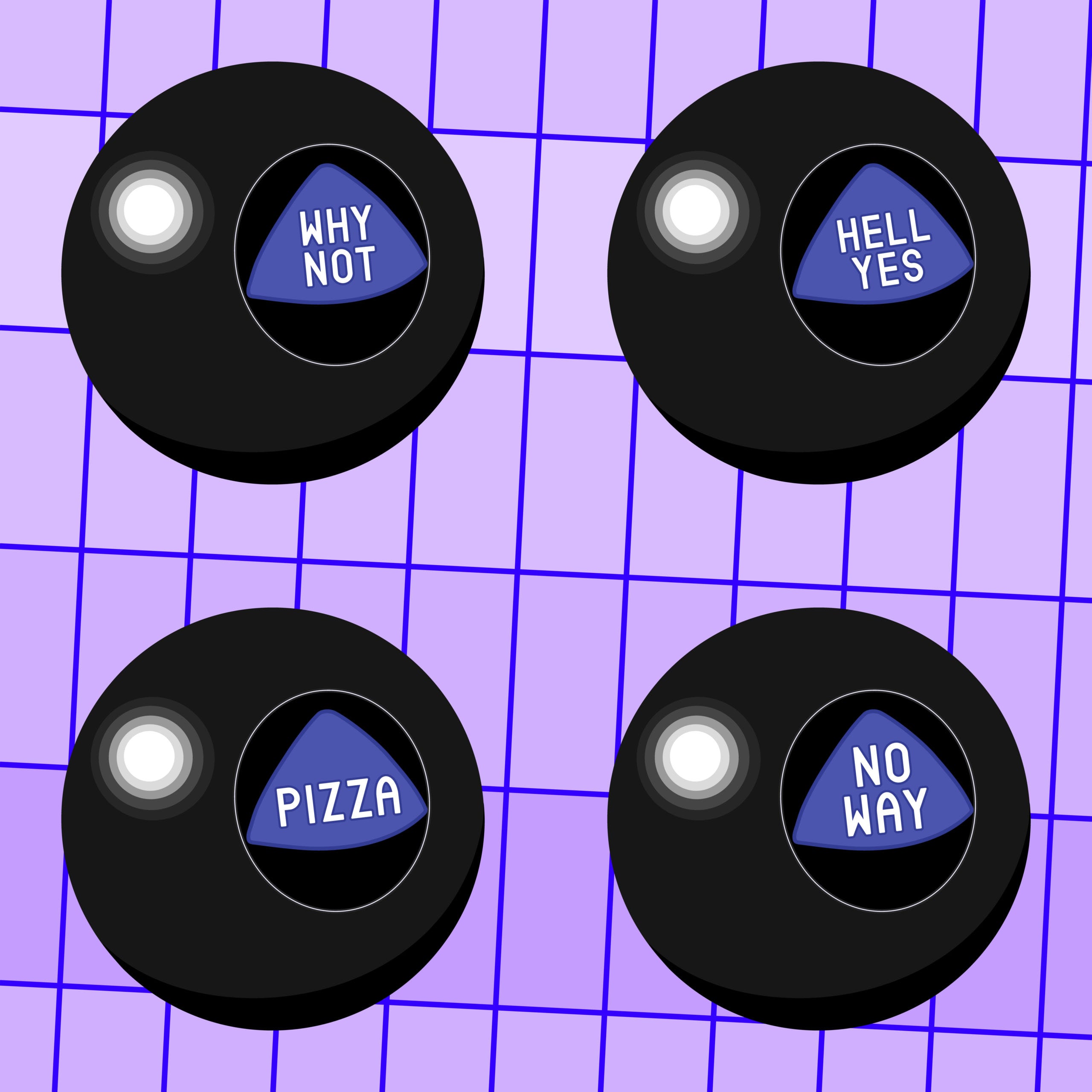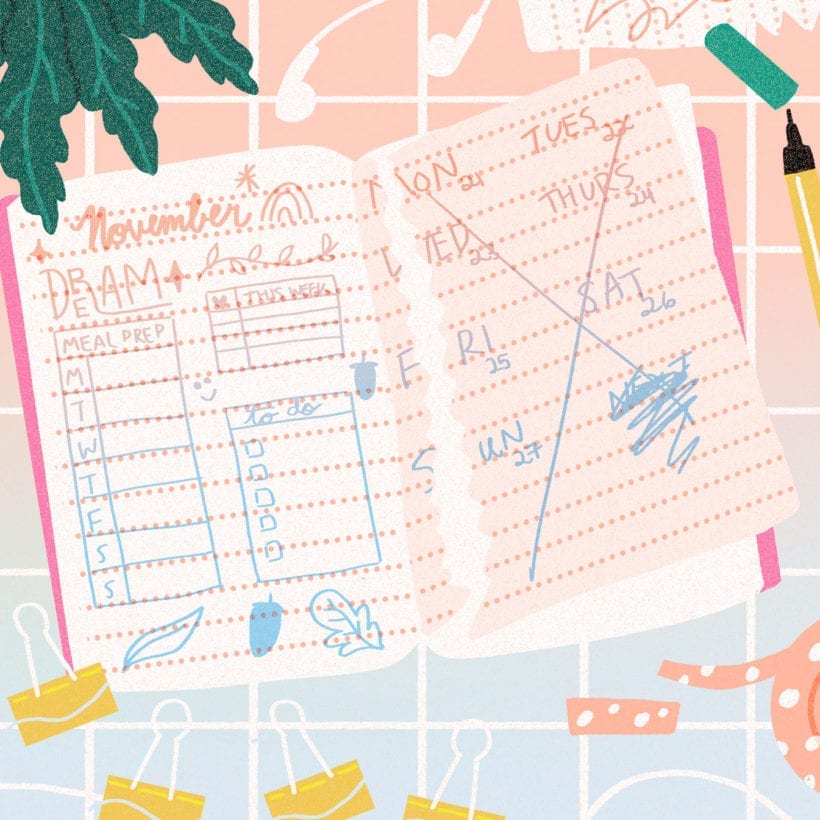I am standing in my local coffee shop trying to pick what I want for lunch. Do I want soup, a sandwich or a salad? Or should I try the cafe next door? Or the one down the street? I stare aimlessly at the aisles trying to make what, on paper, is a very simple decision. Welcome to the modern phenomenon of decision fatigue. When you are stressed, overwhelmed and tired, making even the smallest decision can feel impossible.
The crux of the issue is that we are making more decisions than ever. It is estimated that the average American adult makes about 35,000 remotely conscious decisions each day. Apart from those everyday decisions like what to eat, wear or say, bigger life choices about your career or whether to start a family, can also feel harder to make in the modern world thanks to the digital age. We are constantly privy to people’s highlight reel, and though we can rationalize it, it can be hard to not fall into the dreaded comparison trap if you always see alternative lives and choices playing out in front of you every time you scroll through your social media feed.
Are you struggling with making decisions? We spoke to two experts about how to make choices a little bit easier. While the majority of their advice might apply to bigger decisions, using these tactics when making smaller decisions is an excellent way to flex your decision-making muscles. After all, practice makes perfect.
You Can’t Make the ‘Wrong’ Decision
Whatever decision you make becomes the ‘right’ decision because you have chosen it. “The fear of making the wrong decision can really hold people back,” says self-esteem therapist Ali Moore. The anxiety around making the decision can lead to a sort of stalemate or state of limbo where nothing moves forward.
Plus, no decision is ever entirely final. “Keep in mind that you can always change your mind. Or if something doesn’t work out, you have the power to make a new decision and go in a new direction,” says mindset coach Ruth Kudzi.
Listen to Your Gut
The phrase “listen to your gut” is often bandied around, but what does it actually mean? Kudzi emphasizes the importance of tapping into your intuition when making decisions — harder to do when you are feeling stressed or overwhelmed. She advises switching up your environment. “Take yourself out of the situation: go for a walk, get some fresh air and some time away from technology. By doing so, you can focus on what you are feeling internally as opposed to external things.”
Moore recommends stepping back and looking at the bigger picture. “It’s about making a conscious choice to really evaluate what you are trying to achieve. It can be tempting to focus on the outcome and get distracted by the so-called ‘shiny things’.” For example, when making a new career move, try to put the money, perks, and status to one side and concentrate on the job role itself and the subsequent satisfaction and happiness this can bring.
Write or Talk
When navigating a bigger decision-making process, taking pen to paper via journaling or speaking out loud can help get the thoughts out of your head and help you obtain a sense of what you are feeling. “We often know on an unconscious level what is right for us but we need to give it a voice,” says Kudzi.
She advocates for the idea of an old-fashioned pros and cons list. While the list itself can help you see the good and bad points of either option clearly, it is the way you react to the list that is actually more important. The exercise forces you to get out of your head and connect with your heart. “Focus on how you feel when you look at the list. For example, think about why you might be resisting the one that looks better on paper,” she explains.
When it comes to talking the decision through with another person, choose someone of a neutral viewpoint, that is outside the situation and will not be impacted by the result. “You are looking for someone to act as a soundboard, not a solution. Speak to someone who can give clarity rather than someone who will tell you what you do,” Kudzi recommends.
Set a Realistic Timeframe
Making decisions can be agonizing, but delaying the process just adds to the agony. Kudzi advocates placing a time frame on the decision to prevent it from dragging on forever. “The time frame depends on the decision in hand, but give it a few days, week or month, and then stick to it.”
Moore recommends a similar technique: “Don’t make a rash decision while in crisis mode, say the first 24-48 hours, but after this, set a time frame for when you will come to a decision by.”
Cut Back on Social Media
When it comes to staying in your lane and blocking out external noise, cutting back on social media is crucial. Even the most confident person can suffer from Comparison-itis. “Assess the social media diet you are on. Be mindful of what you are feeding your brain and how you are using social media,” says Kudzi. Moore concurs: “You need to be ruthless with social media. Virtually rid yourself of anyone who makes you doubt yourself.”
This does not mean giving up social media entirely. You can still use the platforms if you set realistic boundaries. But if you suffer with self-control when it comes to scrolling, try time-limiting apps like Moment Forest.
The same goes for community threads and forums. “Too much advice can negatively impact your decision making,” notes Moore. “The conflicting advice can be overwhelming and you can start to lose track and stop listening to yourself.”
We only recommend products we have independently researched, tested, and loved. If you purchase a product found through our links, Sunday Edit may earn an affiliate commission.








